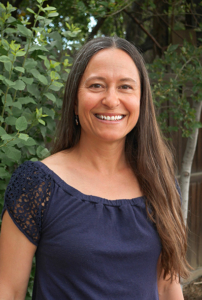How ADHD Can Affect Your Sleep
Q & A with Our Clinic ADHD Specialist Dr. Meghan Van Vleet
Q: Why do people with ADHD struggle to sleep?
It isn’t clear necessarily. We know that 30% of children and 60-80% of adults with ADHD have a sleep disorder. That can result in excessive daytime sleepiness and fatigue. We also know that as little as 30 minutes of sleep deprivation degrades school performance and emotional regulation. Sleep is so important for developing children and they require far more hours than adults do.
Q: How much sleep does a child, teenager or adult need per night?
The National Sleep Foundation recommends toddlers who are ages 1-2 years need 11-14 hours of sleep per day (night hours plus daytime naps). Preschool aged children ages 3-5 need 10-13 hours of sleep per day (night hours plus daytime naps). School aged kids ages 6-13 years need 9 – 11 hours of sleep per night. Teens ages 14-17 need 8-10 hours of sleep per night. Adults need 7-9 hours of sleep per night.
Q: What are the underlying causes of insomnia with ADHD?
Q: Could stimulant medications be the cause of sleep problems?
There is research that suggests that stimulant medications cause delayed sleep onset and worse sleep quality and duration. That is not universal. I have seen some stimulant medications help people with sleep problems. It depends on the individual.
Q: How can you calm an ADHD mind at night?
Mindfulness techniques can be helpful for kids, teenagers and adults. It’s not about shutting the brain down, it’s more about turning the focus and mental engagement to other topics. Visualization and “Jedi mind control” exercises can help the person refocus their mind and calm their nervous system. I teach my patients in my office appointments how to do these techniques. We also talk about how to manage blood sugar levels during the day which can help stabilize blood sugar levels at night and improve sleep. Good sleep hygiene includes a bedtime routine such as a bath or shower followed by story time or reading, make sure screens are off a minimum of 1-2 hours before bed, keeping the room you sleep in cool and dark. Going into a cold room helps the body to shut down.
Learn more about how to optimize sleep here: https://bouldernaturalhealth.com/how-to-optimize-your-sleep-environment/
Q: Is restless leg syndrome associated with ADHD?
Q: Should patients with ADHD be tested for sleep apnea?
Yes. In the past I haven’t often recommended that children get tested because the procedure of a sleep study can be scary. However, now we have at home sleep studies available. There are bracelets and rings that are FDA approved for sleep studies that people can easily get. There are rings sized specifically for children. These devices are different than the Oura ring or a Garmin watch. While those are helpful, they are not approved sleep studies.




